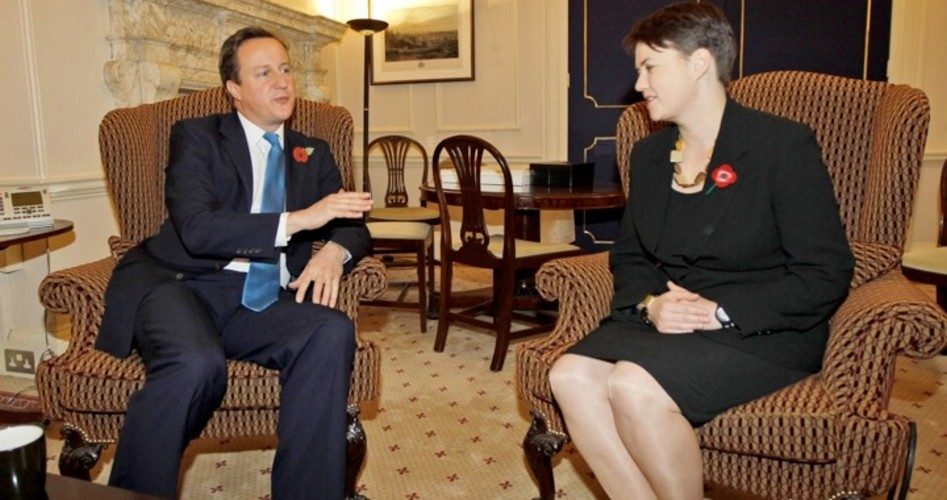
Ruth Davidson, the leader of the Conservative Party in Scotland, has made a refreshing statement for a politician: A “rotten system of patronage” has created a situation in which nine out of 10 households in Scotland receive more benefits from government than the household pays in taxes. Davidson has also taken direct aim at Scottish National Party leader Alex Salmond and leaders in the Labour Party, accusing them of creating a “stranglehold” of dependency.
Only 283,000 Scottish households, Davidson says, pay more into the treasury than take out of it. She notes that public-sector spending now makes up half of the Scottish economy.
The rotten system of patronage which denies so many people real choices in their lives has created a corrosive sense of entitlement which suits its political gang-masters. It is staggering that public sector expenditure makes up a full 50 per cent of Scotland’s GDP and only 12 per cent of households are net contributors, where the taxes they pay outweigh the benefits they receive through public spending. Only 12 per cent are responsible for generating Scotland’s wealth. I wonder how many of them work on public sector contracts. It’s not just staggering, it’s frightening.
Scottish National Party Leader Salmond jumped on Davidson’s remarks: “We are used to the Tories insulting Scotland but Ruth Davidson has now plumbed new depths for her party.” Davidson’s remarks have already been compared to the “mistake” Mitt Romney made when he observed that only 53 percent of American adults pay income taxes and that the other 47 percent do not.
Kenny Gibson, a National Party member of the Scottish Parliament, added: “At least Mitt Romney only insulted half of Americans while Ruth Davidson believes almost 90% of Scots do not contribute to society.” The unusual linkage of collectivist ideas in political parties on either side of the Atlantic seems intended to gain some sort of mea culpa from the Scottish Conservative leader.
Davidson, however, has shown no sign of backing down on her words. Scotland elects few Conservative Party members. In the last general election for the British Parliament in London, Scottish Conservatives received a paltry 16.7 percent of the Scottish vote, winning only one out of 59 seats in the British Parliament from Scotland, and that seat was on the extreme southern border of Scotland, on the border with England.
Scottish Conservatives have done no better in elections to the European Parliament, when in the last election, 2009, they received only 16.8 percent of the Scottish vote. In elections to the Scottish Parliament, a different legislative body, in 2011 Scottish Conservatives received an even worse drubbing with 13.9 percent of the vote, again winning seats only from legislative districts immediately bordering England.
In a couple of years, sometime in autumn of 2014, the Scottish government has announced plans to hold a referendum on Scottish independence. The Conservative Party of Britain, including Davidson, opposes Scottish independence, and Prime Minister Cameron has recently said that keeping Scotland as part of the United Kingdom (the countries “United” in that term are England, Scotland, Wales, and Northern Ireland) is a very high priority for his government.
The price of keeping the kingdom united, however, might be something that English conservatives, who want lower taxes and smaller government, might want to reconsider. If Scotland was independent and had no seats in the British Parliament, then the Conservative Party would be in a much stronger political position in England (and Wales and Northern Ireland).
Otherwise, perhaps the Scottish National Party could research the consequences of taxes on a populace and explain to its followers about Milton Friedman’s maxim about there being no such thing as a free lunch.
Photo of Ruth Davidson with British Prime Minister David Cameron: AP Images



